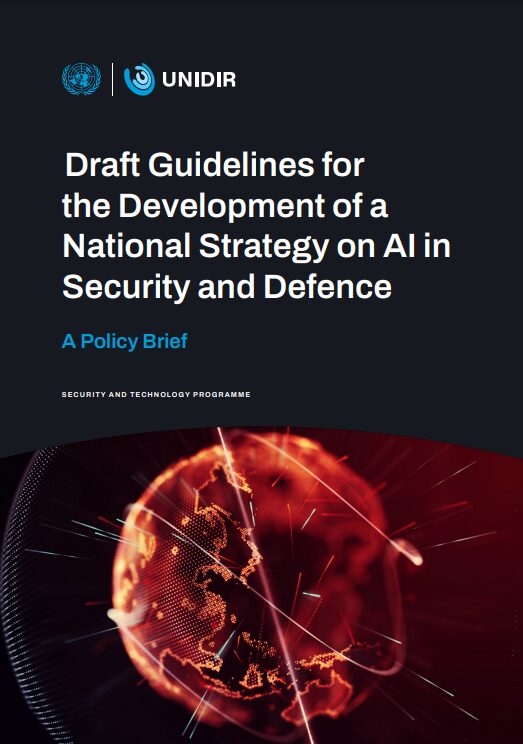As innovation in artificial intelligence (AI) proceeds at breakneck speed, states’ appetite for devising frameworks for the governance of the research, development and deployment of these technologies is at its greatest. With calls for governance solutions increasing at both the national and international levels, the number of national strategy documents that frame the development, deployment and use of these technologies has started to grow across regions.
Yet, most of these policies exclude or barely touch upon security and defence applications. Only a handful of national strategy documents have a section dedicated to this realm; and even fewer are specifically dedicated to it. This scarcity is at odds with the United Nations Secretary-General’s recommendation for Member States to “urgently develop national strategies on responsible design, development and use of artificial intelligence”, as outlined in his New Agenda for Peace.
Against this backdrop, UNIDIR has launched a programme of work to establish guidelines for the development, adoption, implementation and review of national strategies on AI in security and defence. The purpose of the guidelines, both of procedural and substantive nature, is to capture, anticipate and dissect the key issues, considerations and needs that each state must address as it develops or seeks to develop, adopt, implement and review its national strategy on AI in security and defence. In recognition of the host of incentives stemming from the establishment of such strategies, it is hoped that these guidelines will serve as a useful tool for states and non-state stakeholders alike as they seek to address issues related to the responsible development, deployment and use of AI in security and defence.
The present draft guidelines have been released to provide states and all relevant stakeholders involved in the development, adoption, implementation and review of national strategies on AI in security and defence with an opportunity to review and provide feedback to UNIDIR. The Institute aims to adopt a holistic and inclusive method to the establishment of the guidelines; it thus seeks to capture all the varying perspectives, viewpoints and approaches to this issue. We welcome feedback from stakeholders across sectors and domains.
